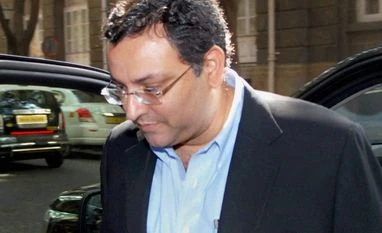F C Kohli, the 92-year-old former chief executive and deputy chairman of Tata Consultancy Services (TCS), has debunked the charges made by ousted Tata Sons chairman Cyrus Mistry that his predecessor Ratan Tata wanted to put on block India’s largest technology services company.
“Cyrus Mistry’s comments regarding the sale of TCS to IBM at some ‘unspecified point in time’ are not correct. I was actively involved in the decision to bring IBM to India. A joint venture (JV) for hardware manufacturing and support in India, Tata IBM, was set up in 1991-92. This JV was undertaken to promote the computer hardware industry in India, which was non-existent at that time,” Kohli said on Wednesday.
“At no point in time was there ever an intention of the Tata Group to sell TCS to IBM,” Kohli’s statement added.
Reacting to this, Mistry said did not want to join issue with Kohli, who built TCS as India’s largest software exporter, but maintained that it was Ratan Tata’s intent and not of the Tata Group to sell the software company to IBM.
“The statement Mr Mistry made was based on information from sources who were close to J R D Tata, who informed him that it was Ratan Tata’s intention, and not the group’s intention, to sell TCS,” Mistry’s office issued a statement after Kohli debunked the ousted chairman’s claim.
On Tuesday, Mistry, who is waging a war of words with Ratan Tata after his ouster as chairman of Tata Sons, had said that Ratan Tata, who was then heading a joint venture of Tata Industries with IBM, had approached J R D Tata with a proposal from IBM to buy out TCS when Kohli was hospitalised with a cardiac condition.
Also Read
Kohli, known as the father of India’s technology services revolution, built the technology arm of the Tatas by delivering services to firms such as American Express before the industry took off as a major job generator for India after the Y2K boom in the late 1990s.
Kohli clarified that J R D Tata had waited for his return from Houston after his bypass surgery in 1984 to discuss Burroughs’ proposal for software work in India under Tata Burroughs, “which might affect TCS’ business”.
Burroughs, a US computer maker, was later sold to Unisys. The Tata Burroughs JV merged with Tata Infotech, which eventually merged with TCS in 2005.
IBM’s partnership with the Tatas paved the way for its re-entry into India, which it had left in 1977, cement its business in the country and branch out as an independent entity.
Mistry also blamed the group’s decision to acquire British steel company Corus for around $12 billion in 2007 when only a year earlier it was available at half that price.
Defending the move, B Muthuraman, former vice-chairman and managing director of Tata Steel, said in a statement the allegations were “frivolous and unconsidered”. He said the long-term strategy of Tata Steel was to grow through capacity expansion in India and through acquisitions overseas.
“The board of Tata Steel was deeply involved in all the deliberations and had approved the transaction. The value of Corus increased since the initial bid in line with the commodity price boom, its underlying performance and the transaction process. The acquisition was through a transparent auction process managed by the takeover regulator in the UK and the acquisition price was £50 million higher than the next bidder,” Muthuraman added.
“In the first two years of the acquisition, Corus had an average annual Ebitda (earnings before interest, tax, depreciation and amortisation) of over £1 billion, which justified the reasonableness of the acquisition,” the statement added.
Muthuraman blamed the global financial crisis of 2008 for the adverse impact on the steel industry in Europe, which also affected Corus.
Tata Steel also issued a statement stating the acquisition of Corus was based on a long-term strategy. “The performance of Corus Plc post acquisition validated the strategy till the black swan event of the global financial crisis structurally impacted the underlying demand conditions in Europe causing financial hardship to the entire industry. The entire acquisition was undertaken by following due board governance process under the supervision and oversight of the board of the company. The acquisition proposal was extensively deliberated in the board and the board approved the transaction,” it said.
Mistry on Wednesday maintained that there were differences and reservations on the Corus deal, even though the company took a unanimous decision to buy the British steel maker.
“Mr Mistry did not say that the ultimate decision was not unanimous, but there were differences and reservations significantly, the fact that Corus was available for purchase at half the price in the recent past is undisputed,” Mistry’s office said in a statement.
)